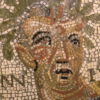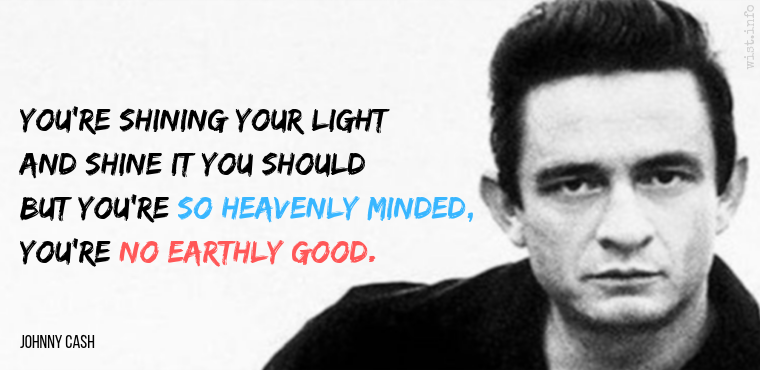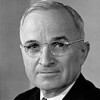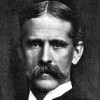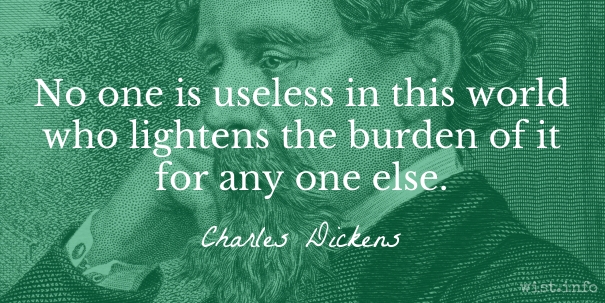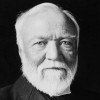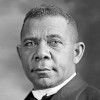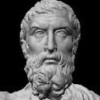Thy Godlike crime was to be kind,
To render with thy precepts less
The sum of human wretchedness,
And strengthen Man with his own mind.
Quotations about:
assistance
Note not all quotations have been tagged, so Search may find additional quotes on this topic.
It is often said that the Church is a crutch. Of course it’s a crutch. What makes you think you don’t limp?
William Sloane Coffin, Jr. (1924-2006) American minister, social activist
Credo, “The Church” (2004)
(Source)
Princes like to be helped, but not surpassed. When you counsel someone, you should appear to be reminding him of something he had forgotten, not of the light he was unable to see.
[Gustan de ser ayudados los príncipes, pero no excedidos, y que el aviso haga antes viso de recuerdo de lo que olvidaba que de luz de lo que no alcanzó.]
Baltasar Gracián y Morales (1601-1658) Spanish Jesuit priest, writer, philosopher
The Art of Worldly Wisdom [Oráculo Manual y Arte de Prudencia], § 7 (1647) [tr. Maurer (1992)]
(Source)
(Source (Spanish)). Alternate translations:
Princes are willing to be assisted, but not surpassed. Those who advise them ought to speak as if they put them in mind of what they forgot, and not as teaching them what they knew not.
[Flesher ed. (1685)]
They [princes] will allow a man to help them but not to surpass them, and will have any advice tendered them appear like a recollection of something they have forgotten rather than as a guide to something they cannot find.
[tr. Jacobs (1892)]
They [kings] may abide being helped, but not surpassed, wherefore let advice given them appear more a jog to what they forgot, than a light to what they could not find.
[tr. Fischer (1937)]
Do you see the consequences of the way we have chosen to think about success? Because we so profoundly personalize success, we miss opportunities to lift others onto the top rung. […] We are too much in awe of those who succeed and far too dismissive of those who fail. And most of all, we become much too passive. We overlook just how large a role we all play — and by “we” I mean society — in determining who makes it and who doesn’t.
Malcolm Gladwell (b. 1963) Anglo-Canadian journalist, author, public speaker
Outliers: The Story of Success, Part 1, ch. 1 (2008)
(Source)
But if my forces
are not enough, I am hardly the one to relent,
I’ll plead for the help I need, wherever it may be —
If I cannot sway the heavens, I’ll wake the powers of hell![Quod si mea numina non sunt
magna satis, dubitem haud equidem implorare quod usquam est:
flectere si nequeo superos, Acheronta movebo.]Virgil (70-19 BC) Roman poet [b. Publius Vergilius Maro; also Vergil]
The Aeneid [Ænē̆is], Book 7, l. 310ff (7.310-312) [Juno] (29-19 BC) [tr. Fagles (2006)]
(Source)
(Source (Latin)). Alternate translations:
But if my own power not sufficient be,
Undaunted, aydes I'le seek where ere they dwell;
Will heaven not grant my sute, I'le raise up hell.
[tr. Ogilby (1649)]
If native pow'r prevail not, shall I doubt
To seek for needful succor from without?
If Jove and Heav'n my just desires deny,
Hell shall the pow'r of Heav'n and Jove supply.
[tr. Dryden (1697)]
But if my own divinity is not powerful enough, surely I need not hesitate to implore whatever deity any where subsists: if I cannot move the powers above, I will solicit those of hell.
[tr. Davidson/Buckley (1854)]
If strength like mine be yet too weak,
I care not whose the aid I seek:
What choice 'twixt under and above?
If Heaven be firm, the shades shall move.
[tr. Conington (1866)]
But if not enough my power,
I shall not pause to ask what aid I may.
And if I cannot bend the gods above,
Then Acheron I'll move.
[tr. Cranch (1872), l. 388ff]
If my deity is not great enough, I will not assuredly falter to seek succour where it may be; if the powers of heaven are inflexible, I will stir up Acheron.
[tr. Mackail (1885)]
But if of no avail
My godhead be, I will not spare to pray what is of might,
Since Heaven I move not, needs must I let loose the Nether Night.
[tr. Morris (1900), l. 310ff]
If too weak
Myself, some other godhead will I try,
And Hell shall hear, if Heaven its aid deny.
[tr. Taylor (1907), st. 42, l. 372ff]
If so weak
my own prerogative of godhead be,
let me seek strength in war, come whence it will!
If Heaven I may not move, on Hell I call.
[tr. Williams (1910)]
But if my powers be not strong enough, surely I need not be slow to seek succour wherever it may be; if Heaven I can not bend, then Hell I will arouse!
[tr. Fairclough (1918)]
So, if my power
Falls short of greatness, I must try another’s,
Seek aid where I can find it. If I cannot
Bend Heaven, I can raise Hell.
[tr. Humphries (1951)]
Well, if my powers are not great enough,
I shall not hesitate -- that's sure -- to ask help wherever
Help may be found. If the gods above are no use to me, then I'll
Move all hell.
[tr. Day-Lewis (1952)]
If my power
is not enough, I shall not hesitate
to plead for more, from anywhere; if I
cannot bend High Ones, then I shall move hell.
[tr. Mandelbaum (1971), l. 410ff]
Well, if my powers fall short,
I need not falter over asking help
Wherever help may lie. If I can sway
No heavenly hearts I'll rouse the world below.
[tr. Fitzgerald (1981), l. 423ff]
But if my own resources as a goddess are not enough, I am not the one to hesitate. I shall appeal to whatever powers there are. If I cannot prevail upon the gods above, I shall move hell.
[tr. West (1990)]
But if my divine strength is not
enough, I won’t hesitate to seek help wherever it might be:
if I cannot sway the gods, I’ll stir the Acheron.
[tr. Kline (2002)]
But if my powers
Are not great enough, why should I hesitate
To seek help from any source whatever?
If I cannot sway Heaven, I will awaken Hell!
[tr. Lombardo (2005)]
If I cannot bend the gods, I will move Acheron.
[tr. @sentantiq (2012)]
If my powers aren't enough, why not stoop to begging anyone? If I can't move the gods above, then I'll move Acheron.
[tr. Bartsch (2021)]
If I cannot bend Heaven, I shall move Hell.
[Bartlett's]
A tinker’s debt is always paid:
Once for any simple trade.
Twice for freely given aid.
Thrice for any insult made.
Alas! in naught may one trust the gods against their will!
[Heu nihil invitis fas quemquam fidere divis!]
Virgil (70-19 BC) Roman poet [b. Publius Vergilius Maro; also Vergil]
The Aeneid [Ænē̆is], Book 2, l. 402 (2.402) [Aeneas] (29-19 BC) [tr. Fairclough (1916)]
(Source)
(Source (Latin)). Alternate translations:
Ah, who may hope if by the Gods deni'd!
[tr. Ogilby (1649)]
But, ah! what use of valour can be made,
When heav'n's propitious pow'rs refuse their aid!
[tr. Dryden (1697)]
Alas! it is right for one to trust to nothing when the gods are adverse.
[tr. Anthon (1843)]
Alas! on nothing ought man to presume, while the gods are against him!
[tr. Davidson/Buckley (1854)]
Alas! a mortal may not lean
On Heaven, when Heaven averts its mien.
[tr. Conington (1866)]
Alas, one ought
To trust in nothing, when the gods oppose.
[tr. Cranch (1872), ll. 549-550]
Alas that none may trust at all to estranged gods!
[tr. Mackail (1885)]
Alas! what skills it man to trust in Gods compelled to good?
[tr. Morris (1900)]
Ah! vain to boast, if Heaven refuse to aid!
[tr. Taylor (1907)]
But woe is me! If gods their help withhold,
't is impious to be brave.
[tr. Williams (1910)]
Alas! it is not well for anyone to be confident when the gods are adverse.
[Source (1922)]
It is not for men to trust unwilling gods.
[tr. Humphries (1951)]
Ah, well, there's no trusting the gods for anything, once they're against you!
[tr. Day Lewis (1952)]
But oh, it is not right for anyone
to trust reluctant gods!
[tr. Mandelbaum (1971), ll. 540-541]
When gods are contrary
They stand by no one.
[tr. Fitzgerald (1981), ll. 532-533]
But no man can trust in gods who are opposed to him.
[tr. West (1990)]
Ah, put no faith in anything the will of the gods opposes!
[tr. Kline (2008)]
Never rely on the gods for anything
Against their will.
[tr. Lombardo (2005), ll. 466-467]
But, oh
how wrong to rely on gods dead set against you!
[tr. Fagles (2006), ll. 501-502]
How wrong it is to trust the gods against their will!
[tr. Bartsch (2021)]
Shame is not of his soul; nor understood,
The greatest evil and the greatest good.[οὐδέ οἱ αἰδὼς
γίγνεται, ἥ τ᾽ ἄνδρας μέγα σίνεται ἠδ᾽ ὀνίνησι.]Homer (fl. 7th-8th C. BC) Greek author
The Iliad [Ἰλιάς], Book 24, l. 44ff (24.44) [Apollo] (c. 750 BC) [tr. Pope (1715-20)]
(Source)
Speaking of Achilles' mistreatment of Hector's corpse. Pope footnotes: "This is obscure. The original is, 'He has no shame, shame which harms men much, and profits them much.' Dr. Leat, following an ancient critic, thinks the passage an interpolation."
Alternate translations:
And shame, a quality
Of so much weight, that both it helps and hurts excessively
Men in their manners, is not known, nor hath the pow’r to be,
In this man’s being.
[tr. Chapman (1611), l. 47ff]
Shame, man’s blessing or his curse.
[tr. Cowper (1791), l. 58]
Cowper footnotes: "His blessing, if he is properly influenced by it; his curse in its consequences if he is deaf to its dictates."
Nor in him is there sense of shame, which greatly hurts and profits men.
[tr. Buckley (1860)]
Conscience, arbiter of good and ill.
[tr. Derby (1864)]
Neither hath he shame, that doth both harm and profit men greatly.
[tr. Leaf/Lang/Myers (1891)]
That conscience which at once so greatly banes yet greatly boons him that will heed it.
[tr. Butler (1898)]
Neither is shame in his heart, the which harmeth men greatly and profiteth them withal.
[tr. Murray (1924)]
There is not in him any shame; which does much harm to men but profits them also.
[tr. Lattimore (1951)]
He has no shame -- that gift that hinders mortals but helps them, too.
[tr. Fitzgerald (1974)]
No shame in the man,
shame that does great harm or drives men on to good.
[tr. Fagles (1990), l. 52ff]
Shame and respect no
longer he has, which harm men greatly but profit them also.
[tr. Merrill (2007)]
I think, for what my young opinion’s worth,
That good as it is to have infallible wisdom,
Since this is rarely found, the next best thing
Is to be willing to listen to wise advice.[γνώμη γὰρ εἴ τις κἀπ᾽ ἐμοῦ νεωτέρου
πρόσεστι, φήμ᾽ ἔγωγε πρεσβεύειν πολὺ
φῦναι τὸν ἄνδρα πάντ᾽ ἐπιστήμης πλέων:
εἰ δ᾽ οὖν, φιλεῖ γὰρ τοῦτο μὴ ταύτῃ ῥέπειν,
καὶ τῶν λεγόντων εὖ καλὸν τὸ μανθάνειν.]Sophocles (496-406 BC) Greek tragic playwright
Antigone, l. 719ff [Haemon] (441 BC) [tr. Watling (1947)]
(Source)
Original Greek. Alternate translations:
For, if grounded maxims
May find their utterance e'en in me your son,
I dare be bold to say 'tis better far
That understanding should be born in man:
But if this may not be: -- and, to say sooth,
The common scale inclines not thus, -- 'tis well
To learn from any one who reasons soundly.
[tr. Donaldson (1848)]
For, if one young in years may claim some sense,
I'll say 'tis best of all to be endowed
With absolute wisdom; but, if that's denied,
(And nature takes not readily that ply)
Next wise is he who lists to sage advice.
[tr. Campbell (1873)]
If any judgement hath informed my youth,
I grant it noblest to be always wise,
But, -- for omniscience is denied to man --
Tis good to hearken to admonishment.
[tr. Storr (1859)]
For if even from me, a younger man, a worthy thought may be supplied, by far the best thing, I believe, would be for men to be all-wise by nature. Otherwise -- since most often it does not turn out that way -- it is good to learn in addition from those who advise you well.
[tr. Jebb (1891)]
For if I, a younger man, may offer my thought, it were far best, I ween, that men should be all-wise by nature; but, otherwise -- and oft the scale inclines not so -- 'tis good also to learn from those who speak aright.
[tr. Jebb (1917)]
I know I am young; but please let me say this: The ideal condition
Would be, I admit, that men should be right by instinct;
But since we are all too likely to go astray,
The reasonable thing is to learn from those who can teach.
[tr. Fitts/Fitzgerald (1939), l. 578ff]
Young as I am, if I may give advice,
I'd say it would be best if men were born
perfect in wisdom, but failing this
(which often fails) it can be no dishonor
to learn from others when they speak good sense.
[tr. Wyckoff (1954)]
If one who is still young can speak with sense,
Then I would say that he does best who has
Most understanding; second best, the man
Who profits from the wisdom of another.
[tr. Kitto (1962)]
I'm young, I know, but let me offer this:
it would be best by far, I admit,
if a man were born infallible, right by nature.
If not -- and things don't often go that way --
it's best to learn from those with good advice.
[tr. Fagles (1982), l. 805ff]
For if an opinion comes up from me, a younger person,
I say it is by far best that a man be born filled with
wisdom. If he is not, for the scale does not usually so incline,
to learn from those speaking competently is a noble thing.
[tr. Tyrell/Bennett (2002)]
I’m younger, I know but I still might be able to judge what’s right and I say that it’s a good thing for a man to be born with all possible wisdom but still -- because it’s not such a common thing -- to be able to learn from others.
[tr. Theodoridis (2004)]
For if I, as a younger man, may state
my views, I’d say it would be for the best
if men by nature understood all things --
if not, and that is usually the case,
when men speak well, it good to learn from them.
[tr. Johnston (2005)]
Even though I'm young, a good idea might come from me: It would be best by far that man be born full of all the knowledge there is, but, if it usually happens not to turn out that way, to learn from those who speak well is a good substitute.
[tr. Thomas (2005)]
DEXTER: You know, before I got married, Emily used to come by sometimes and help me clean out my apartment. Well, I asked her, “How come you’re so eager to help clean up my place when your place is just as bad?” She said, “Because cleaning up your place helps me to forget what a mess I’ve made of mine, and — when I sweep my floor, all I’ve done is sweep my floor. But, when I help you clean up your place, I am helping you.”
Who kindly sets a wand’rer on his way
Does e’en as if he lit another’s lamp by his:
No less shines his, when he his friend’s hath lit.[Homó, qui erranti cómiter monstrát viam,
Quasi lúmen de suo lúmine accendát, facit.
Nihiló minus ipsi lúcet, cum illi accénderit.]Ennius (239-169 BC) Roman poet, writer [Quintus Ennius]
Telephus, frag 412-414 [tr. Miller (1913)]
(Source)
The fragment comes to us from Cicero, De Officiis [On Duties; On Moral Duty; The Offices], Book 1, ch. 16 / sec. 51 (44 BC). Original Latin. Alt. trans.:
He that directs the wandering traveller,
Doth, as it were, light another's torch by his own;
Which gives him ne'er the less of light, for that
It gave another.
[tr. Cockman (1699)]
The man who kindly points out the way to the wandering traveller, gives light to the lamp of another, without diminishing by the communication the light of his own.
[tr. McCartney (1798)]
He who kindly shows the bewildered traveller the right road, does as it were light his lamp by his own; which affords none the less light to himself after it has lighted the other.
[tr. Edmonds (1865)]
Who kindly shows a wanderer his way,
Lights, as it were, a torch from his own torch, --
In kindling others' light, no less he shines.
[tr. Peabody (1883)]
The man who kindly points the way top a wanderer, does as though he kindles a light from the light that is his; it shines none the less for himself when he has kindled it for his fellow.
["trib Teleph. R suae lumine accendit facis Hartman, Mnemoe., XXI, 382 fortass recte"]
Come heed me, my brothers, come heed, one and all
Don’t brag about standing or you’ll surely fall
You’re shining your light and shine it you should
But you’re so heavenly minded, you’re no earthly goodIf you’re holding heaven, then spread it around
There’s hungry hands reaching up here from the ground
Move over and share the high ground where you stood
So heavenly minded, you’re no earthly goodJohn R. "Johnny" Cash (1932-2003) American singer-songwriter, guitarist, actor, author
“So Heavenly Minded, You’re No Earthly Good”
(Source)
Taft explained that the great issue in this campaign is “creeping socialism.” Now that is the patented trademark of the special interest lobbies. Socialism is a scare word they have hurled at every advance the people have made in the last twenty years. Socialism is what they called public power. Socialism is what they called Social Security. Socialism is what they called farm prices supports. Socialism is what they called bank deposit insurance. Socialism is what they called the growth of free and independent labor organizations. Socialism is their name for almost anything that helps all the people.
Harry S Truman (1884-1972) US President (1945-1953)
Speech, Syracuse, New York (1952-10-10)
(Source)
Referring to Sen. Robert A. Taft (R-Ohio).
Audio recording (the quotation is at 6:35 into the speech).
There is a loftier ambition than merely to stand high in the world. It is to stoop down and lift mankind a little higher. There is a nobler character than that which is merely incorruptible. It is the character which acts as an antidote and preventive of corruption.
Henry Van Dyke (1852-1933) American clergyman and writer
“Salt,” Baccalaureate Sermon, Harvard University (19 Jun 1898)
(Source)
When I think about all the money we spent on bombs and munitions, and our failures in Viet Nam, Iraq, Afghanistan and other places around the world … Instead of advancing our agenda using force, we should have instead built schools and hospitals in these countries, improving the lives of their children. By now, those children would have grown into positions of influence, and they would be grateful to us instead of hating us.
George Shultz (b. 1920) American economist, statesman, and businessman
(Attributed)
(Source)
Quoted in In Daniel Levitin, The Organized Mind (2014).
Though we see the same world, we see it through different eyes. Any help we can give you must be different from that you can give yourselves, and perhaps the value of that help may lie in the fact of that difference.
You cannot push anyone up the ladder unless he is willing to climb.
Andrew Carnegie (1835-1919) American industrialist and philanthropist
(Attributed)
Most common form of an adage Carnegie frequently used regarding charity. Variants:
- "It is of no use to boost a man up a ladder unless he is willing to climb himself." -- In Cyrus Holdridge, "A Millionaire and His Hobby," Our Day (Jan 1900).
- "You cannot push anyone up a ladder unless he is willing to climb a little himself." -- Elbert Hubbard, Little Journeys to the Homes of Great Business Men, Vol. 25 (1909).
It is all right to tell a man to lift himself up by his own bootstraps, but it is a cruel jest to say to a bootless man that he ought to lift himself up by his own bootstraps.
All people should be loved equally. But you cannot do good to all people equally, so you should take particular thought for those who by the chance of place or time or anything else are, as if by lot, in particularly close contact with you.
[Omnes autem aeque diligendi sunt. Sed cum omnibus prodesse non possis, his potissimum consulendum est, qui pro locorum et temporum vel quarumlibet rerum opportunitatibus constrictius tibi quasi quadam sorte iunguntur.]
Augustine of Hippo (354-430) Christian church father, philosopher, saint [b. Aurelius Augustinus]
On Christian Doctrine [De Doctrina Christiana], Book 1, ch. 28 / § 29 (1.28.29) (AD 397) [tr. Green (1995), § 61]
(Source)
(Source (Latin)). Alternate translations:
Further, all men are to be loved equally. But since you cannot do good to all, you are to pay special regard to those who, by the accidents of time, or place, or circumstance, are brought into closer connection with you.
[tr. Shaw (1858)]
All other men are to be loved equally; but since you cannot be of assistance to everyone, those especially are to be cared for who are most closely bound to you by place, time, or opportunity, as if by chance.
[tr. Robertson (1958)]
Many hands make light warke.
John Heywood (1497?-1580?) English playwright and epigrammist
Proverbes, Part 2, ch. 5 (1546)
(Source)
Friendship may well deserve the sacrifice of pleasure, though not of conscience.
Samuel Johnson (1709-1784) English writer, lexicographer, critic
The Rambler, #64 (27 Oct 1750)
(Source)
Now, God has thus ordered things that we may learn to bear one another’s burdens; for there is no man without his faults, none without his burden. None is sufficient in himself; none is wise in himself; therefore, we must support one another, comfort, help, teach, and advise one another.
[Nunc autem Deus sic ordinavit, ut discamus alter alterius onera portare, quia nemo sine defectu, nemo sine onere, nemo sibi sufficiens, nemo sibi satis sapiens, sed oportet invicem portare, invicem consolari, pariter adjuvare, et ammonere.]
Thomas à Kempis (c. 1380-1471) German-Dutch priest, author
The Imitation of Christ [De Imitatione Christi], Book 1, ch. 16, v. 4 (1.16.4) (c. 1418-27) [tr. Sherley-Price (1952)]
(Source)
See Galatians 6:2.
(Source (Latin)). Alternate translations:
Therefore God hath so ordained that each one of us shall learn to bear another’s burden: for in this world no man is without default, no man without burden, no man sufficient to himself, nor no man wise enough of himself. Wherefore it behoveth each one of us to bear the burden of others, to comfort others, to help others, to inform others, and to instruct and admonish others in all charity.
[tr. Whitford/Raynal (1530/1871)]
Therefore, God has so ordained that each one of us shall learn to bear another's burden, for in this world no man is without fault, no man without burden, no man sufficient to himself, and no man wise enough of himself. And so it behooves each one of us to bear the burden of others, to comfort others, to help others, to counsel others, and to instruct and admonish others in all charity.
[tr. Whitford/Gardiner (1530/1955)]
But now God hath thus ordained that every man should have a burthen of his owne, let us learne to support and beare one anothers burthens. For there is none without defect, none without his burthen, no man sufficient by himselfe, no man wise enough of himselfe. But we ought to bear with one another, comfort one another, equally helpe, instruct, and admonish one another.
[tr. Page (1639), 1.16.11-13]
But, as the present Condition of the World is ordered, God hath furnished us with constant Occasions of bearing one another's Burthens. For there is no Man lives without his Failings; no Man that is so happy, as never to give Offence; no Man without his Load of Trouble; no Man so sufficient, as never to need Assistance; none so wise, but the Advice of others may, at some time or other, be useful and necessary for him: And therefore we should think ourselves under the strongest Engagements to comfort and relieve, and instruct, and admonish, and bear with one another.
[tr. Stanhope (1696; 1706 ed.)]
But in the present fallen state of human nature, it is his Blessed Will, that we should learn to bear one another's burthens: and as no man is free from some burthen of sin or sorrow; as none has strength and wisdom sufficient for all the purposes of life and duty, the necessity of mutual forbearance, mutual consolation, mutual support, instruction and advice, is founded upon our mutual imperfections, troubles and wants.
[tr. Payne (1803)]
But now God hath thus ordered it, that we may learn to bear one another's burdens; for no man is without fault; no man but hath his burden; no man sufficient of himself; no man wise enough of himself; but we ought to bear with one another, comfort one another, help, instruct, and admonish one another.
[ed. Parker (1841)]
But in the present fallen state of human nature, it is His Blessed Will that we should learn to bear one another's burthens: and as no man is free from some burthen of sin or sorrow, as none has a strength and wisdom sufficient for all the purposes of life and duty, the necessity of mutual forbearance, mutual consolation, mutual support, instruction, and advice, is founded upon our mutual imperfections, troubles, and wants.
[tr. Dibdin (1851)]
But now God has so ordered it, that we learn to bear one another's burdens; for there is no man without defect, no one without his burden, no man sufficient for himself, no man wise enough for himself; but we must support one another, comfort one another, assist, instruct, and admonish one another.
[ed. Bagster (1860)]
But now hath God thus ordained, that we may learn to bear one another’s burdens, because none is without defect, none without a burden, none sufficient of himself, none wise enough of himself; but it behoveth us to bear with one another, to comfort one another, to help, instruct, admonish one another.
[tr. Benham (1874)]
But now God hath thus ordered it, that we may learn to bear one another's burdens; for no man is without fault; no man but hath his burden; no man is sufficient of himself; no man is wise enough of himself; but we ought to bear with one another, comfort one another, help, instruct, and admonish one another.
[tr. Anon. (1901)]
But God has so ordained, that we may learn to bear with one another's burdens, for there is no man without fault, no man without burden, no man sufficient to himself nor wise enough. Hence we must support one another, console one another, mutually help, counsel, and advise.
[tr. Croft/Bolton (1940)]
But now God has so arranged that we may learn to bear each other’s burdens, for none is faultless, none without a burden, none sufficient to himself, none wise enough in himself: but we must bear with each other, comfort each other, help, teach, and advise each other.
[tr. Daplyn (1952)]
He will have us learn to bear the burden of one another's faults. Nobody is faultless; each has his own burden to bear, without the strength or the wit to carry it by himself; and we have got to support one another, console, help, correct, advise one another, each in his turn.
[tr. Knox-Oakley (1959)]
As it is, [God] has made things the way they are so that we may learn to bear the burden of one another’s failings. There is no one free from weakness, no one without a load to carry, no one who is self-sufficient, no one who can dispense with others’ help; and so it is our duty to support each other, to comfort each other, to help, guide and advise each other.
[tr. Knott (1962)]
It is God’s plan that we should learn to carry each other's troubles . There is no one free of faults, no one burdenless, no one self-sufficient, no one clever enough to stand alone. We must support one another, comfort one another, help build up one another by instruction and advice.
[tr. Rooney (1979)]
But now God has so arranged things that we may learn to bear each other's burdens, for no one is without faults, no one is without burdens, no one is wholly self-sufficient, no one has enough wisdom all by himself. That being the case, we must support and comfort each other; together we must help, teach, and advise one another.
[tr. Creasy (1989)]
Many times a day I realize how much my own outer and inner life is built upon the labors of my fellow men, both living and dead, and how earnestly I must exert myself in order to give in return as much as I have received. My peace of mind is often troubled by the depressing sense that I have borrowed too heavily from the work of other men.
Albert Einstein (1879-1955) German-American physicist
“What I Believe,” Forum and Century (Oct 1930)
(Source)
Einstein crafted and recrafted his credo multiple times in this period, and specifics are often muddled by differing translations and by his reuse of certain phrases in later writing. The Forum and Century entry appears to be the earliest. Some important variants:
A hundred times every day I remind myself that my inner and outer life are based on the labors of other men, living and dead, and that I must exert myself in order to give in the same measure as I have received and am still receiving. I am strongly drawn to a frugal life and am often oppressively aware that I am engrossing an undue amount of the labor of my fellow-men.
— "The World As I See It [Mein Weltbild]" [tr. Bargmann (1954)]
A hundred times every day I remind myself that my inner and outer life depend on the labours of other men, living and dead, and that I must exert myself in order to give in the same measure as I have received and am still receiving. I am strongly drawn to the simple life and am often oppressed by the feeling that I am engrossing an unnecessary amount of the labor of my fellowmen.
— "The World As I See It [Mein Weltbild]" [tr. Harris (1934)]
I am often troubled by the thought that my life is based to such a large extent on the work of my fellow human beings, and I am aware of my great indebtedness to them.
[Oft bedrückt mich der Gedanke, in welchem Maße mein Leben auf der Arbeit meiner Mitmenschen aufgebaut ist, und ich weiß, wie viel ich Ihnen schulde.]
— Reduced variant in "My Credo [Mein Glaubensbekenntnis]" (Aug 1932)
The gods help them that help themselves.
Aesop (620?-560? BC) Legendary Greek storyteller
Fables [Aesopica], “Hercules and the Wagoner” (6th C BC)
(Source)
Alternate translation: "Heaven only aided those who endeavoured to help themselves. It is in vain to expect our prayers to be heard, if we do not strive as well as pray." [tr. James (1848)]
TIMON: ‘Tis not enough to help the feeble up,
But to support him after.William Shakespeare (1564-1616) English dramatist and poet
Timon of Athens, Act 1, sc. 1, l. 107ff (1.1.107-108) (1606) [with Thomas Middleton]
(Source)
If I can stop one heart from breaking
I shall not live in vain
If I can ease one life the aching
Or cool one pain
Or help one fainting robin
Unto his nest again
I shall not live in vain.










